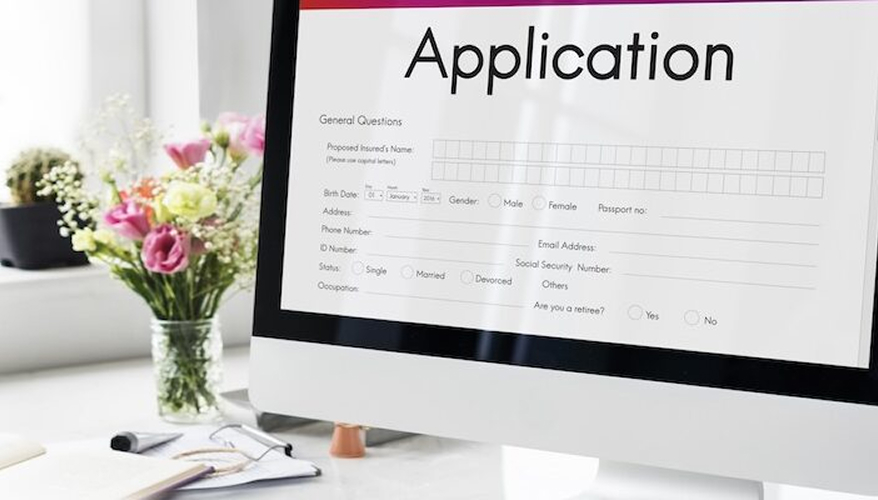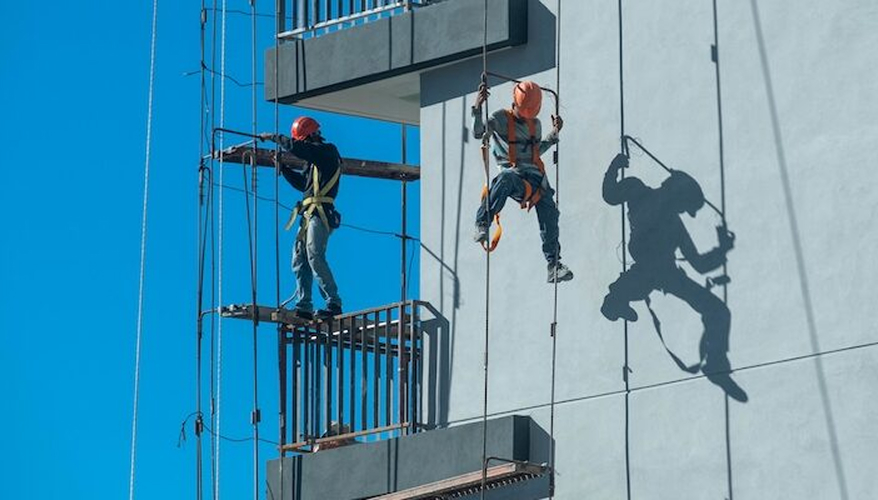You might need to rent a house if you’re a foreign worker in Singapore or maybe a Singaporean who is only waiting for your new apartment to be renovated. The good news is that Singapore offers a wide variety of property types at various price points for rentals, and given the island’s tiny size, it’s rare to even find any location that’s genuinely inaccessible.
The rental market in Singapore is flexible, and tenants should therefore be first aware of this. For instance, there is no standard Tenancy Agreement (TA) that all landlords must abide by, nor are there policies like rent control. However, you may benefit much from this openness if you are aware of the rules. What is important for you to know is as follows:
What Is the Cost of Renting a House in Singapore?
The following is based on the Urban Redevelopment Authority’s records of transactions during the previous 12 months (URA). You may manually verify this by going to the URA website.
1. Rent for HDB Apartments
Compared to private homes, HDB flat sizes are more “standardised,” and 3-, 4-, and 5-room HDB listings are plentiful. Different HDB towns have HDB apartments, and in general, the more central and established the estate, the more costly the rent would be.
Certain older HDB apartments, like those constructed in the 1990s or before, can be bigger than the newer ones. Additionally, there are anomalies like two-story maisonettes and enormous HDB apartments, although these are uncommon.
2. Rent for Condos
In the case of condominiums, we have included both the district’s average monthly rental rate and the average rental rate on a PSF basis. Additionally, unlike HDB apartments, the size and design of units vary greatly.
3. Additional Charges to Be Aware of While Renting a Residential Apartment In Singapore
The majority of landlords need a security deposit. The security deposit will be used to cover the costs of repairing any damage to the property, breaking the terms of the lease, etc.
Although there are no rules in Singapore defining any minimum or maximum amount for the deposit, it is customary for deposits to equal one month’s rent for each year of the lease.
The deposit is typically equal to one month’s worth of rent if your lease is for six months, which is the minimum term. Although the rent itself may be flexible, landlords seldom go beyond this sum for the deposit.
Your security deposit is not required to be held in a trust or escrow account by Singaporean landlords. Instead, the cash can be given to them directly.
Be aware that you could be required to provide a good faith deposit or earnest deposit when you initially submit a Letter of Intent (LOI) to the landlord. When the tenancy agreement (TA) is signed, this deposit becomes the security deposit.
Additionally, especially if you’re the only earner in the household, it’s a good idea to obtain enough life insurance to assist pay your rent should you become disabled. In the worst-case situation, this will save you (and any loved ones living with you) from losing your house.
What Do You Need to Consider When Choosing a Rental Property in Singapore?
If you’re a foreigner looking for housing in Singapore, you should take into account some of the following aspects.
1. Your Budget
Set a rental budget before you begin looking for a unit to prevent yourself from making rash judgments and to make the process of shortlisting properties much easier.
This will also assist you in selecting the location and type of home you can afford to rent. Let’s say you have a $1,500 monthly rental budget. You might be able to rent a 540-square-foot apartment in Tampines for this, but Bugis may be out of your price range.
Your ability to afford a given amount will rely on your salary and the other living expenditures you might have. Generally speaking, if you lose your job, your emergency fund should be sufficient to pay for 3 to 6 months’ worth of living costs (including rent). Don’t create a rental budget that will be impossible for you to meet in the event of an emergency.
2. Your Lifestyle Necessities
Some landlords could forbid both smoking and pets within the rental home. These could eliminate certain possibilities for you when it comes to choosing the right place.
Please make sure that your pet is on the HDB’s list of permitted dog breeds, even if your landlord has no pet policies. (Cats are also not permitted in HDB apartments.)
Ask whether there are any restrictions on using the common spaces if you intend to rent a room in a shared apartment.
Are there restrictions on the kind of meat you may prepare in the kitchen, such as no pork or beef, or regulations about how the fridge or living room must be shared, for example? What rules apply to having visitors? In a common bathroom, where should toiletries be kept?
The Tenancy Agreement (TA) should provide details on what is permitted and what is not.
You must also be cool with the other tenants’ dogs, smoking, etc. if you will be sharing the apartment with them.
3. The Size of the Living Area
Determine how much room you’ll require to be comfortable. Families often look for apartments with at least 1,100 square feet, while individuals typically rent spaces that are between 500 and 600 square feet.
Don’t forget to factor in personal items like your clothing, sports equipment, musical instruments, etc., while figuring out this figure.
4. Accessibility of the Residential Area
Make careful to get the following information about every property you visit:
- Can you easily use your preferred method of transportation to arrive at work on time?
- Can your kids arrive at school on time, too?
- How far is it from the property to the closest bus or train station?
- How far is it to your preferred hangouts, the park, the beach, or the mall? Will you need to drive there or can you walk there?
- How bad is the traffic during rush hour? On your journey home or to work, will you get trapped on the road?
Rental prices for homes close to MRT stations and shopping centres are often expensive, but the convenience may make it worthwhile.
5. Close Proximity to Amenities and Facilities
Check the condition of the pool, gym, BBQ pit, and other amenities if you are choosing to rent in a condominium. If the pool is outdated and in poor condition, there is no purpose in paying condo rental charges.
In terms of amenities, some important ones to consider are:
- The nearby grocery store or wet market.
- Malls and restaurants. Be sure you can afford to frequent them; it makes no sense to live close to $200 per dinner Michelin Star restaurants on a student budget.
- 24-hour restaurants and shops, especially if you have irregular hours.
- Branches of banks and ATMs.
- The nearby schools for your kids.
- The availability of medical services if you should require them.
- Possible hangouts like parks, bars, and theatres.
6. The Need for Fully Equipped, Partially Equipped, or Unequipped Apartments
Whether the landlord furnishes the rental unit is indicated by this.
In general, choosing an equipped or semi-equipped apartment will be more convenient for tenants who want to remain for a short period, such as six months to a year. This eliminates the inconvenience of having to buy furniture when you move in and then having to sell it again when your lease is up.
Families who relocate for a few years or longer tend to favour unequipped homes as a tenant preference. This allows you the flexibility to set up the space as you see fit, whether that means adding to the existing furniture or, if you’re pregnant, setting up a nursery.
If the apartment is equipped or partially equipped, you will receive an inventory list of what the landlord is providing for you at the beginning of your lease.
You’ll need to go through this list with the landlord to verify that everything is there and to note any conditions, such as whether something is already damaged. Your security deposit will be deducted for any loss of or damage to these goods.
As a side note, the longer you remain, the more likely it is that you may damage something on the inventory list.
7. The Leasing Terms
For HDB apartments, the shortest lease term in Singapore is six months, while the maximum term is three years. The lease must be for a minimum of three consecutive months for private properties. Weekly or daily rental is not permitted.
If you sign a longer lease, some landlords will agree to reduce the rates. But if you’re a newcomer to Singapore, it could be a smart idea to merely sign the bare minimum lease for your first home. By doing this, you’ll have the option to switch accommodations after you’ve gotten a feel for your surroundings and can decide if you like the place.
8. The Type of Neighbors Around
How content you are on a property may depend on the neighbours. Visit the property at various times of the day, especially at night, to observe how noisy it is and to get a sense of your possible neighbours.
If you have the opportunity, get to know your future neighbours by having a direct conversation with them. As the noise from the units above and below might be a concern in the future, make sure to enquire about the neighbours who live upstairs and downstairs as well.
How Can You Acquire the Most Affordable Rental Prices In Singapore?
First, conduct your homework and compare the rentals of nearby houses within a one-kilometre radius around the house for which you have been quoted the rental rate. Comparing comparable apartments on Internet real estate search portals is an easy way to accomplish this.
Try negotiating for a lower monthly rental in exchange for signing a longer lease if you want to stay set in one place for a long period. However, it is important to keep in mind that a shorter lease could save you money in a difficult rental market since you can renegotiate the rate sooner when rental rates decline.
Your power bill is another negotiable item. Check to see if your landlord is willing to pay for this. One method to persuade your landlord to agree is to mention that, so long as tenants don’t compensate them for such rental-related costs, he will be allowed to deduct the cost of utilities from their taxes.
You may also request a reference from coworkers or acquaintances who are tenants, as some landlords provide incentives for doing so. If you are introduced to a landlord by one of his current tenants, for instance, he could be ready to offer you a lower rate.
Finally, think about whether you’ll utilise what you are paying for. Renting a condo, for instance, would be pointless if you aren’t going to use the amenities, like the gym or pool. Pay only what you need.
How Can You Search for Rental Apartments?
The major methods for doing this are three:
- Utilising real estate platforms like Property Guru, 99.co, Oh My Home, and others is the first step. You may search and filter listings using these, as well as get in touch with the agent or landlord. Due to the availability of features like map views and rental pricing comparisons on most portals, this method of searching for homes is typically favoured.
- The second method involves word-of-mouth recommendations. As previously said, getting referrals from friends or coworkers to landlords may enable you to negotiate a lower rent.
- Utilising a real estate agent is the third strategy. The additional benefit in this situation is that they will handle all the paperwork and guarantee a smooth transaction.
Note that a real estate agent in Singapore cannot act on behalf of both a tenant and a landlord; you will work with your agent, and the landlord will work with his.
Although their service charges (or commission) are adjustable, here is an example of how things often go:
- The landlord pays the commissions for both agents for lease terms of at least two years and rent of at least $3,500 per month. It will cost you nothing.
- You pay half a month’s rent as commission for lease terms of at least one year and rent of at least $3,500 per month. The balance is paid by the landlord.
- You pay one month’s rent as a commission for lease terms longer than two years and a monthly rental under $3,500.
- You pay half a month’s rent as commission for leases with a monthly rental under $3,500 and a one-year commitment.
It’s a good idea to employ a property agent if you have never rented a home in Singapore before to obtain an idea of the procedure. This will enable you to experiment with DIY for later rentals.
What Procedure Do You Need to Follow to Rent a House in Singapore?
An outline of the steps you must take to rent a property in Singapore as a foreigner is provided below:
1. Check Out the Properties
This will be arranged by the landlord or property agency.
2. When You Decide On the Apartment You Desire, Send the Letter of Intent (LOI) Together with a Sincerity Deposit
It should be noted that the LOI is not a binding contract – that would be the Tenancy Agreement (TA). Keep in mind that, as we indicated earlier, the good faith deposit will become the security deposit afterwards.
If the landlord agrees, it is occasionally feasible to bypass this phase and proceed directly to signing the TA. If you are very certain this is what you want; you can go ahead and insist on this.
3. Deposit the Rental Stamp Duty
Take note that this should be completed before signing the TA. If the lease is for four years or less, the fee is 0.4% of the total rent for the duration of the lease; for example, if the rent is $2,500 per month for one year, the cost is (0.4% of $30,000) = $120.
In the unlikely event that you will be renting for more than four years, the cost is equal to 0.4% of the average annual rent (AAR).
Theoretically, if the yearly rent is less than $1,000, there is no stamp duty; nevertheless, a rate that low is quite uncommon.
4. Verify and Sign Your Tenancy Agreement (TA)
Before you sign, make sure the TA’s terms correspond to those in the LOI.
For instance, if you consented to the inclusion of pets and the LOI has this clause, but the TA does not, this should be resolved before you sign.
Additionally, even though landlords are not compelled to follow any standard TA, you can still use this contract template. It was created by parties with expertise in the renting of real estate to establish a uniform, equitable standard.
Do become acquainted with it beforehand. It’s important to take note that the typical form includes several clauses you might wish to contest, such as the tenant’s responsibility for air conditioner maintenance.
The TA will also outline how often you need to pay your landlord and whether you are responsible for covering utility costs.
5. Take Photographs of Everything on the Inventory List, Particularly Damaged Items
This will demonstrate that any damage was not caused by you after you moved in.
The remainder of the property should then be subjected to one last inspection. If some time has passed between your original viewing and the TA signature, this should specifically be done.
6. Verify Any Current Homeowner’s Content Insurance
The majority of landlords will cover themselves with property insurance, which will help pay for damaged furniture, appliances, and other items. However, you shouldn’t assume that this applies to you because it’s often intended to safeguard the landlord’s property.
Getting house insurance is a wise idea. This is crucial if you rent an unfurnished apartment since you will own everything inside.
The Conclusion
When choosing the ideal rental, take your time. Avoid making a hasty choice. Before you finalise a property, take the time to shop around, organise your funds and make a budget. In Singapore, renting may be a painless procedure with time and preparation.
As a foreigner in a new country, there is a lot you need to understand and take care of. To help you with that, we have curated a handy guide of things you should know before moving to Singapore.








